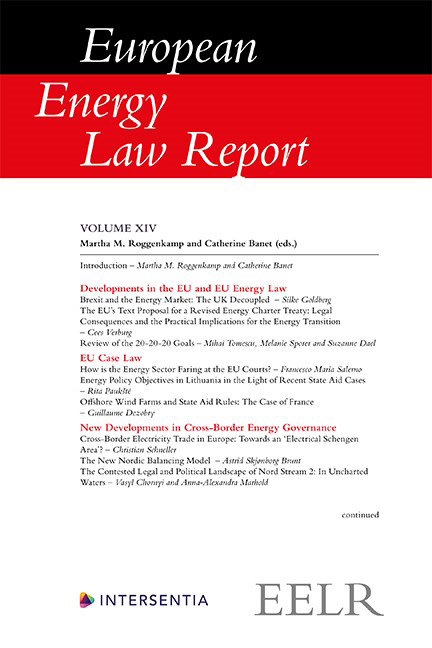Chapter XII - Energy Communities in the Netherlands: Learning from Local Energy Initiatives
Published online by Cambridge University Press: 26 May 2022
Summary
INTRODUCTION
As part of the Clean Energy Package (CEP), the EU introduced new legislation – the recast Electricity Directive (2019/944/EU) and the recast Renewable Energy Directive (2018/2001/EU) – aiming at empowering the consumer by means of, inter alia, establishing ‘citizen energy communities’ (CECs) and ‘renewable energy communities’ (RECs). The transposition of these directives will be determining for the development of energy communities in the Member States. Currently, the Netherlands is one of the Member States with most of the community energy initiatives. Since 2011, the number of community energy initiatives in the country has increased from 34 to 212 in 2015 and up to 623 in 2020. In total, about 97.000 participants are involved in these initiatives, which cover about 85% of the municipalities.
These 623 community energy initiatives not only include bottom-up led projects, but also initiatives and projects that are financed and organised ‘top-down’ by, for example, energy production and supply companies, project development companies and housing associations. While some of these initiatives have existed for some time, the steep increase in the numbers occurred since 2010, as a result of changes to the legal framework adopted in 2014 and 2015, which aimed to stimulate decentral collective energy projects.
This chapter aims at presenting the legal framework that has been applied in the Netherlands to stimulate the development of community energy initiatives, and aims to identify the legal obstacles. This is relevant in connection with the transposition of the EU legal provisions on CECs and RECs into Dutch law. Following this introduction, section 2 presents an overview of the concept of energy communities and the development of community energy initiatives in the Netherlands. Section 3 examines the legal framework, which has been governing these energy community initiatives, outlines experiences on the basis of case studies, and highlights the opportunities and remaining obstacles in their implementation. Section 4 discusses how the Netherlands is planning to implement the EU legal provisions on CECs and RECs, and how this corresponds to the experiences gained with the energy community initiatives. Section 5 concludes by critically reflecting upon the legal measures which facilitated energy community initiatives until recently and how the proposal for a new legal framework follows up on this.
- Type
- Chapter
- Information
- European Energy Law Report , pp. 239 - 264Publisher: IntersentiaPrint publication year: 2021
- 2
- Cited by



